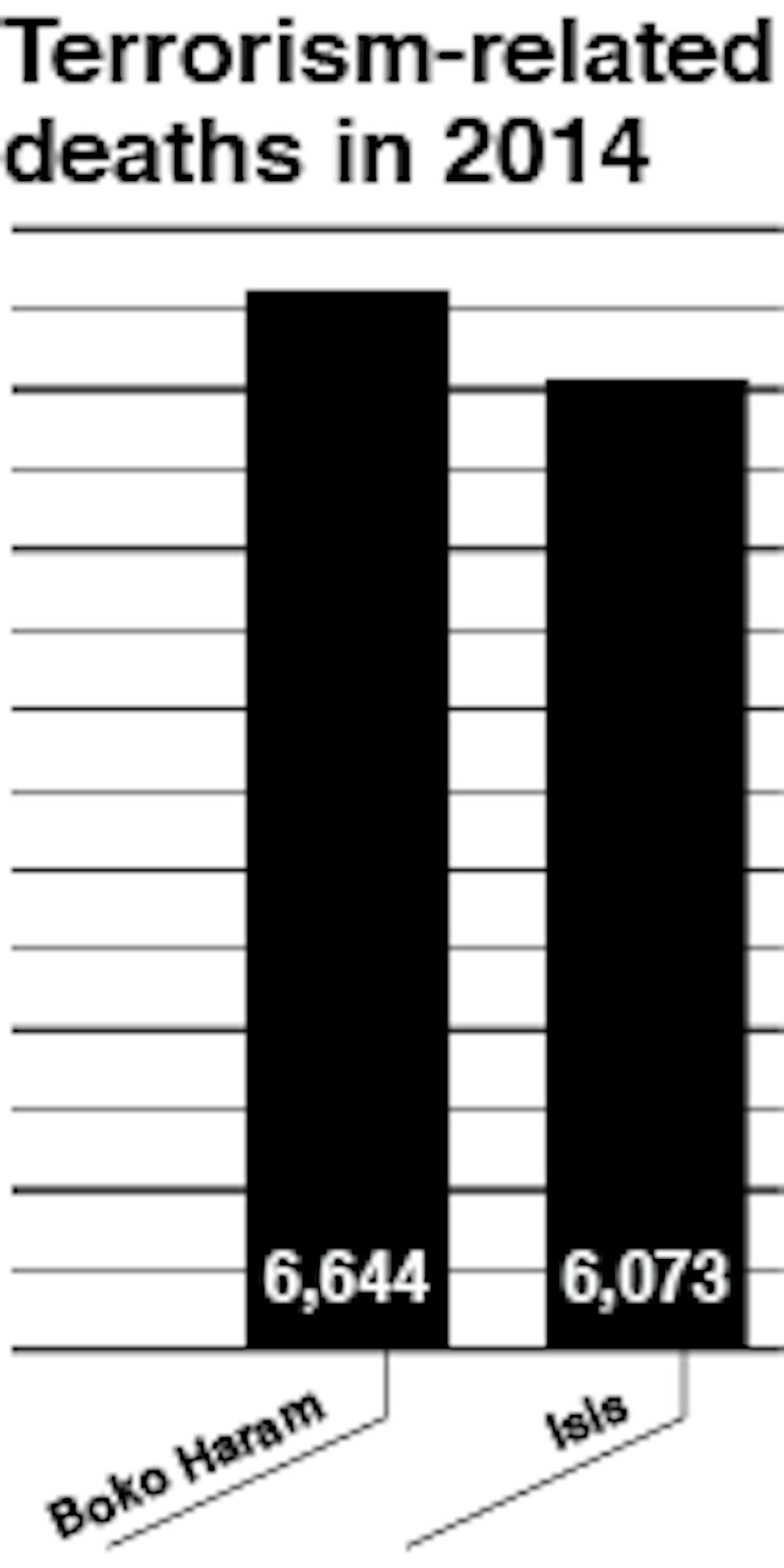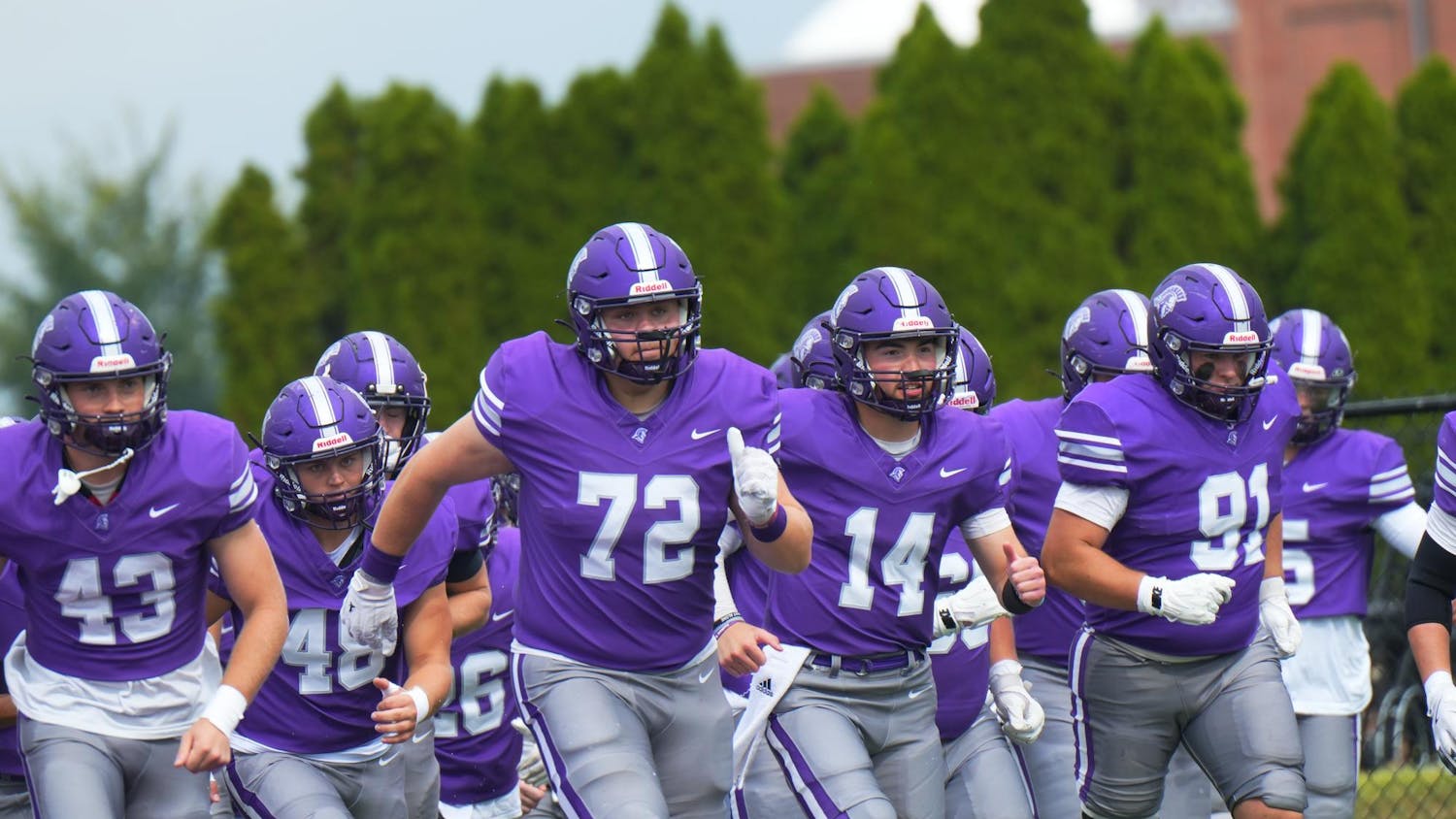By Luke A. Wildman | Opinions Editor

We sat in a circle in my college dorm's lobby, chatting after Bible study.
"Did you hear about the explosion today?" someone asked. "Ten people killed. Terrorism. Isn't that horrible?"
Inside, I screamed. Death is always horrible-indescribably so-but I'd just returned from a two-month visit to my home in Nigeria. While there, I'd interacted with internally displaced people (IDPs): People who've lost everything.
In Nigeria, towns and villages are regularly destroyed by Boko Haram-a terrorist group connected to ISIS, except often more deadly and far less likely to receive Western media coverage. Boko Haram killed 6,644 people during 2014, compared to ISIS's 6,073, according to "The Independent," a United Kingdom-based news agency. Yet terrorism in my part of the world is old news. Westerners rarely discuss it.
This bias is understandable: after all, people naturally focus on events related to them. The deaths of 130 individuals to terrorism bombings in Paris will have a larger global impact than the Agatu massacre: a tribal-conflict slaughter of some 300 Nigerians in the village of Agatu, Benue State in March 2016. But France is a western country, so an attack there makes us feel less safe. Nigeria is in the third world. We feel detached from its silent griefs.
Boko Haram is a large, very deadly terrorist organization. Regardless of your familiarity with them, when I say "terrorist group," ISIS undoubtedly springs first to mind. I've heard my U.S. friends theorize with morbid fascination about how ISIS is going to cross the U.S. border and invade us. Everyone loves to dwell on the dramatic.
I grew up in a city rife with terrorism, religious violence, riots and secret killings. I was once woken when a bomb blast in a nearby church rattled my bedroom windows. I've seen thick, black smoke drift up from burning cars on the streets. So when I heard my friends' theorize, those were the images I imagined.
Journalism can help us learn sensitivity to others' griefs.
Like all industries, journalism is run by money. If an article about a U.S. shopping mall stabbing garners more clicks than a decimated Nigerian village, that will be on the front pages. If you want to read about the silent parts of the world, you'll have to dig. Go beyond CNN, BBC and Fox. Look up news sources from other parts of the world. You cannot possibly inform yourself about everywhere-and your knowledge will mostly concern events that directly affect you, which is OK-but reading about other countries will remind you there's a world outside the West. People live and die there, too. Where the tragedies that rattle day-to-day routines are commonplace.
It reminds us how lucky we are.
Please remember: it's not about whose grief is worse. Ethnic violence in Nigeria results in more death and destruction than racial riots and police shootings in the United States, but, you know what? Those deaths feel personal to you. As they should.
Here's something you can do: earlier, I mentioned Internally Displaced People in Nigeria. Why not support SIM Nigeria, the organization my parents work with? They help people affected by terrorism, andinformation about the organization is readily available online.
Being educated about the issues foreign peoples face will help you express to them that they aren't alone. Trust me: as someone raised in an often-ignored country, sympathy helps. I appreciate people who genuinely care for the sorrows of my home.
By reading this, you've helped me feel heard about the problems in my country. That makes a difference. Thank you.





